ABU Radio Song Festival
| ABU Radio Song Festival | |
|---|---|
 Generic logo used for the ABU Radio Song Festivals. | |
| Genre | Song festival |
| Created by | Marcel Bezençon |
| No. of episodes | 2 festivals |
| Production company(s) | Asia-Pacific Broadcasting Union |
| Distributor | Asia-Pacific Broadcasting Union |
| Release | |
| Picture format |
576i (SDTV) 1080i (HDTV) |
| Original release | 11 October 2012 – present |
| External links | |
| Official website | |
The ABU Radio Song Festival is a biennial song competition, organised by the Asia-Pacific Broadcasting Union (ABU), and is based on the Eurovision Song Contest.[1] The format consists of an non-televised semi-final and grand final which is broadcast.[2]
Participating countries which have full or additional full ABU membership are invited to submit a song from an act that is unsigned to any record label. These entries are listened to by a panel of jury members, who select fifteen to proceed towards the radio festival final, were another panel of judges determining the top-5 prize winners.[2] The grand final may be broadcast live via radio and television, or as a delayed live recorded broadcast for national broadcasters who may wish to add subtitles in their native languages.[1]
Development
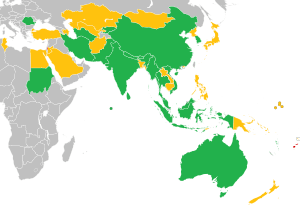
The Asia-Pacific Broadcasting Union (ABU) had already run an international song contest for its members inspired by the Eurovision Song Contest in 1985 – 1987, called the ABU Popular Song Contest, with 14 countries of the Asia-Pacific region competing.[3] The show had a similar concept to the current radio song festival with winners being chosen by a professional jury. South Korea, New Zealand and Australia celebrated victories in this competition. In 1989 – 1991 ABU co-produced the ABU Golden Kite World Song Festival in Malaysia with participation of Asia-Pacific countries, as well as Yugoslavia and Finland.[3]
Shortly before launching the ABU Song Festival, the ABU had been considering the possibility to organize the ABU ASEAN TV Song Festival in Thailand.[3] Historically, ASEAN song contests had been organized in periods between 1981 and 1997, however since 2011 the ASEAN Festival had been organized between local Radio stations as Bintang Radio ASEAN. The ABU outlined a plan about a "television song festival" based on the style of the Eurovision Song Contest following the cancellation of Our Sound. Kenny Kihyung Bae, chosen to the project manager, attended Eurovision Song Contest 2012 in Baku, Azerbaijan to learn more about the contest before putting it to work.[4][5]
In November 2011, the ABU announced that they would organize its own TV and Radio Song Festivals to take place in Seoul, the South Korean capital, in time with 49th General Assembly in October 2012.[6] The name Asiavision Song Contest was initially mentioned as a possibility, but they were later officially titled ABU TV Song Festival and ABU Radio Song Festival. According to the ABU, the deadline for participation applications for ABU TV Song Festival 2012 was 18 May 2012.[7][8]
Format
The ABU Radio Song Festival is a competition for musicians, who are not under contract with any label. The ABU recommends its members to introduce participating musicians and their songs on radio.[9] Every participant is chosen by one national radio broadcaster. A jury represented by ABU members chooses 15 finalists from 26 submissions. The finalists perform during the general assembly of the ABU. Another jury awards the best artists.[9][10]
Participation
- Table key
Other ABU members
The following list of ABU members are eligible to participate in the ABU Radio Song Festival, but have yet to make their début appearance.
-
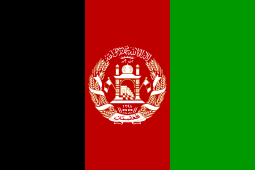 Afghanistan
Afghanistan -
 Azerbaijan
Azerbaijan -
 Bangladesh
Bangladesh -
 Cambodia
Cambodia -
 Egypt
Egypt -
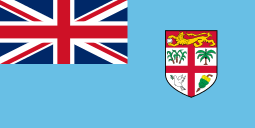 Fiji
Fiji -
 Hong Kong
Hong Kong -
 Japan
Japan -
 Jordan
Jordan -
 Kazakhstan
Kazakhstan -
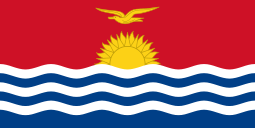 Kiribati
Kiribati -
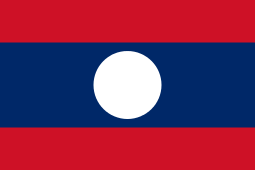 Laos
Laos -
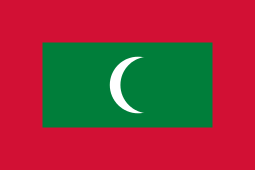 Maldives
Maldives -
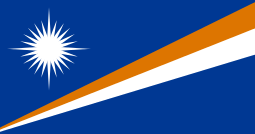 Marshall Islands
Marshall Islands -
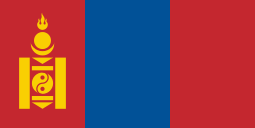 Mongolia
Mongolia -
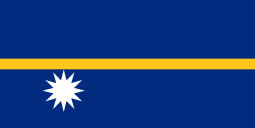 Nauru
Nauru -
 New Zealand
New Zealand -
 Norfolk Island
Norfolk Island -
 North Korea
North Korea -
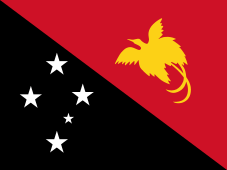 Papua New Guinea
Papua New Guinea -
 Philippines
Philippines -
 Qatar
Qatar -
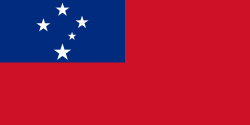 Samoa
Samoa -
 Saudi Arabia
Saudi Arabia -
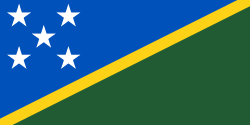 Solomon Islands
Solomon Islands -
 Timor-Leste
Timor-Leste -
 Tonga
Tonga -
 Turkey
Turkey -
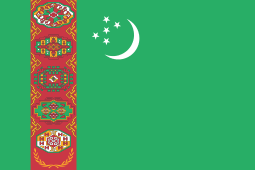 Turkmenistan
Turkmenistan -
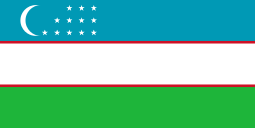 Uzbekistan
Uzbekistan
Hosting
| Year | Date | Host country | Host city | Venue | Participants |
|---|---|---|---|---|---|
| 2012 | 11 October 2012 | |
Seoul | KBS Hall | 13 |
| 2014 | 23 May 2014 | |
Colombo | Stein Studios | 12 |
| 2015 | 29 May 2015 | |
Yangon | National Theatre of Yangon | 10 |
| 2016 | 26 April 2016 | |
Beijing | China National Radio Auditorium | 14 |
| 2017 | 27 April 2017 | |
Bangkok | TBA | 2 (to date)[16] |
See also
- ABU Song Festivals
- ABU TV Song Festival
- Bundesvision Song Contest
- Cân i Gymru
- Caribbean Song Festival
- Eurovision Dance Contest
- Eurovision Song Contest
- Eurovision Young Dancers
- Eurovision Young Musicians
- Intervision Song Contest
- Junior Eurovision Song Contest
- OGAE
- OGAE Second Chance Contest
- OGAE Video Contest
- Sopot International Song Festival
- Turkvision Song Contest
Notes and references
Notes
- ^ Fiji had initially selected Sevanaia Yacalevu to represent the Pacific nation with the song "Time For A Change", but later withdrew from competition.
References
- 1 2 3 "ABU Radio Song Festival 2012". Asia-Pacific Broadcasting Union. Retrieved 16 August 2012.
- 1 2 Granger, Anthony. "ABU Radio Song Festival: All you need to know". eurovoix.com. Eurovoix. Retrieved 22 October 2014.
- 1 2 3 Mikheev, Andy (16 August 2012). "Participants - ABU TV and Radio Song Festivals 2012". escKaz.com. Retrieved 17 August 2012.
- ↑ "ABU to launch 'Asiavision Song Contest'?". European Broadcasting Union. Retrieved 25 March 2012.
- ↑ "Asiavision contest to begin next year". News.AZ. 10 November 2011. Retrieved 25 March 2012.
- ↑ "ABU to launch 'Asiavision Song Contest'". EBU. 8 November 2011. Retrieved 9 June 2012.
- ↑ Hamzah, Hanizah. "ABU TV Song Festival". Asia-Pacific Broadcasting Union. Archived from the original on 20 September 2012. Retrieved 4 October 2012.
- ↑ "ABU to launch 'Asiavision Song Contest'". EBU. 8 November 2011. Retrieved 9 June 2012.
- 1 2 abu.org.my: ABU Radio Song Festival Archived September 30, 2012, at the Wayback Machine.
- ↑ abu2012seoul.com: Program at a Glance Archived December 30, 2012, at the Wayback Machine.
- ↑ Granger, Anthony (27 October 2014). "All you need to know about the ABU Radio Song Festival". eurovoix.com. Eurovoix. Retrieved 27 October 2014.
Who could debut at this years contest?
- ↑ "ABU gets leaders' backing for increased activities". ABU Radio Song Festival 2015. ABU. Retrieved 23 May 2013.
- ↑ "ABU Radio Song Festival 2015". ABU. Archived from the original on 4 December 2014. Retrieved 9 November 2014.
- ↑ "China National Radio will be hosting the 2016 RAC & RSF in Beijing". ABU News Q2. Asia-Pacific Broadcasting Union. p. 29. Retrieved 30 June 2015.
- ↑ Halliwell, Jamie (30 July 2016). "ABU Radio Song Festival to be held in Thailand in 2017". eurovoix-world.com. Eurovoix. Retrieved 1 August 2016.
- ↑ https://eurovoix-world.com/indonesia-abu-radio-song-festival-2017-participation-confirmed/